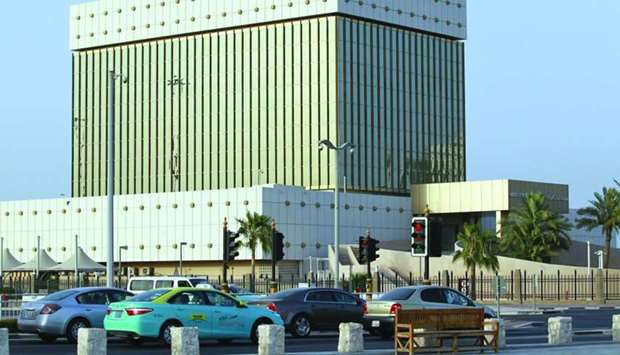“We expect price pressures in Qatar to remain manageable over the quarters ahead. The ongoing diplomatic crisis and resultant restrictions on cross-border movements between Qatar and Saudi Arabia, the UAE, Bahrain and Egypt will add to import costs as supply chains are reorganised,” BMI said.
However, BMI believes the government will absorb most of these in order to ease the effects of the crisis on the local population and businesses.
Recent data showed only a small, temporary uptick in inflation following the outbreak of the crisis on June 5 – to 0.8% y-o-y in that month – and a deceleration to 0.2% in July, indicating that this trend is playing out.
BMI also believes that Doha will hold off on fiscal consolidation measures amid the crisis, limiting the likelihood of these putting upside pressure on inflation in the coming months.
The Qatar Central Bank (QCB) will continue to track the US Federal Reserve's tightening cycle through to 2019, given the riyal's dollar peg, BMI noted.
Following the US Fed's June 2017 hike to its benchmark interest rate by 25bps, the QCB raised its overnight deposit rate by the same margin to 1.5%.
It chose to keep its overnight lending and repo rates at 5% and 2.25% respectively – likely in order to limit pressure on local banks' funding costs in the short term, amid the ongoing diplomatic crisis.
“We forecast another two hikes each by the Fed in 2018 and 2019 – and expect the Qatari monetary authorities to broadly follow suit,” BMI said.
Qatar's large foreign reserves – sufficient to cover around 12 months of imports – mean the central bank would be able to defend the riyal's peg to the dollar should the interest differential with the US narrow.
Rising energy prices and FIFA World Cup-linked projects are set to push economic activity and inflation up, however, weakening the case for the QCB to delay hikes over the coming years.
Over the next few years, BMI expects rising hydrocarbon prices to drive a moderate acceleration in inflation. It expects Brent prices to average $54 per barrel and $55 in 2017 and 2018, respectively – significantly higher than the $45.1 level recorded over 2016.
As the government has removed long-standing energy subsidies and linked domestic petrol and diesel prices to global markets, this will add some inflationary pressures in the country.
Meanwhile, some of the upward pressure on inflation in Qatar will be offset by increased housing supply, which has caused housing prices – a key driver of inflation in recent years – to fall in recent months.
Overall, BMI forecasts inflation in Qatar to average 2.8% in 2017 and 3.1% in 2018, from 2.7% in 2016.

Cars drive past the building of the Qatar Central Bank in Doha. Qatar's large foreign reserves u2013 sufficient to cover around 12 months of imports u2013 mean the central bank would be able to defend the riyal's peg to the dollar should the interest differential with the US narrow.
Price pressures in Qatar will “remain manageable,” BMI Research said and noted the government will continue to absorb added import costs linked to the reorganisation of supply chains, which is necessitated by some GCC countries' blockade against the country.
